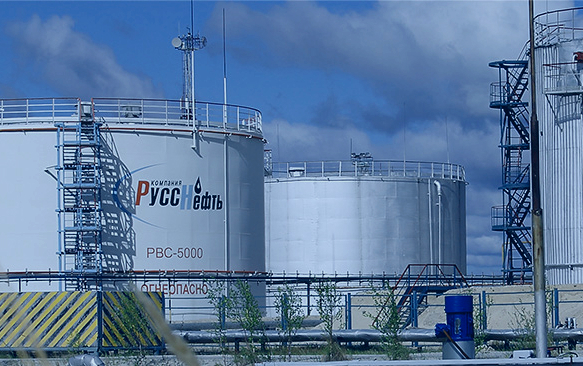Russia Makes New Proposal to Belarus for Oil Supply Terms
MINSK (Reuters) - Russia has proposed new terms for future oil supplies to Belarus to partially compensate Minsk for the cost of taxes introduced last year, Moscow said on Friday, in a sign of potential progress in a two-month row between the two countries.
Minsk and Moscow have been at loggerheads since January 1, when they failed to agree on oil delivery terms for 2020 and major Russian oil companies suspended pipeline oil supplies to Belarus.
Russian Energy Minister Alexander Novak said on Friday that proposals by Russian companies for a price formula mechanism for Belarus oil purchases had been sent to Minsk.
Moscow had been supplying crude oil and oil products to Minsk with no export fee under a duty-free deal between Russia, Belarus and Kazakhstan. But it amended its tax code in 2019 to halt that arrangement.
The Russian tax changes cost Belarus $330 million in 2019, Belarus said this month. The country's state budget lost $130 million, while Belarusian oil refineries lost $200 million.
Belarus President Alexander Lukashenko said on Friday that his Russian counterpart Vladimir Putin had proposed to compensate Minsk for $300 million of the 2019 losses. He also said Moscow was ready to keep oil supply terms for 2020 the same as they were last year.
"It was an unexpected proposal," Lukashenko said when meeting one of Russia's regional officials in Minsk.
Russia and Belarus have not reached any firm agreement on the terms of oil supplies to Belarus, Kremlin spokesman Dmitry Peskov told reporters on a conference call.
The Russian tax changes would cost Belarus $420-430 million in 2020 if Russia supplies the country with 24 million tonnes of oil, Lukashenko said later on Friday, adding that Russian companies could refund Minsk this money.
"It is some kind of forward progress. We are going to work in this direction," he said.
Safmar Group companies, Russneft and Neftisa, are currently the only suppliers of Russian oil to Belarus, forcing Minsk to look for crude from other countries.
Related News
Related News

- Kinder Morgan Proposes 290-Mile Gas Pipeline Expansion Spanning Three States
- 1,000-Mile Pipeline Exit Plan by Hope Gas Alarms West Virginia Producers
- Valero Plans to Shut California Refinery, Takes $1.1 Billion Hit
- Three Killed, Two Injured in Accident at LNG Construction Site in Texas
- Boardwalk’s Texas Gas Launches Open Season for 2 Bcf/d Marcellus-to-Louisiana Pipeline Expansion
- New Alternatives for Noise Reduction in Gas Pipelines
- Construction Begins on Ghana's $12 Billion Petroleum Hub, But Not Without Doubts
- DOE Considers Cutting Over $1.2 Billion in Carbon Capture Project Funding
- Valero Plans to Shut California Refinery, Takes $1.1 Billion Hit
- Newsom Seeks to Aid Struggling Refiners Following Valero’s California Exit





Comments